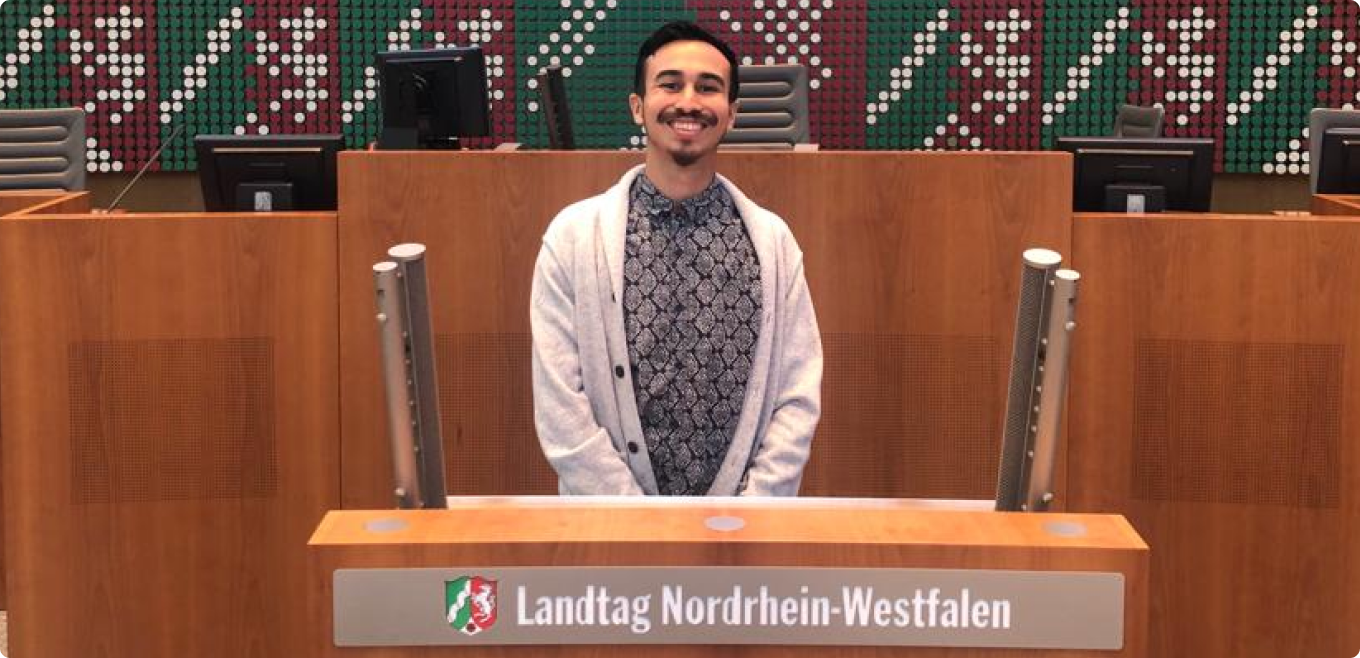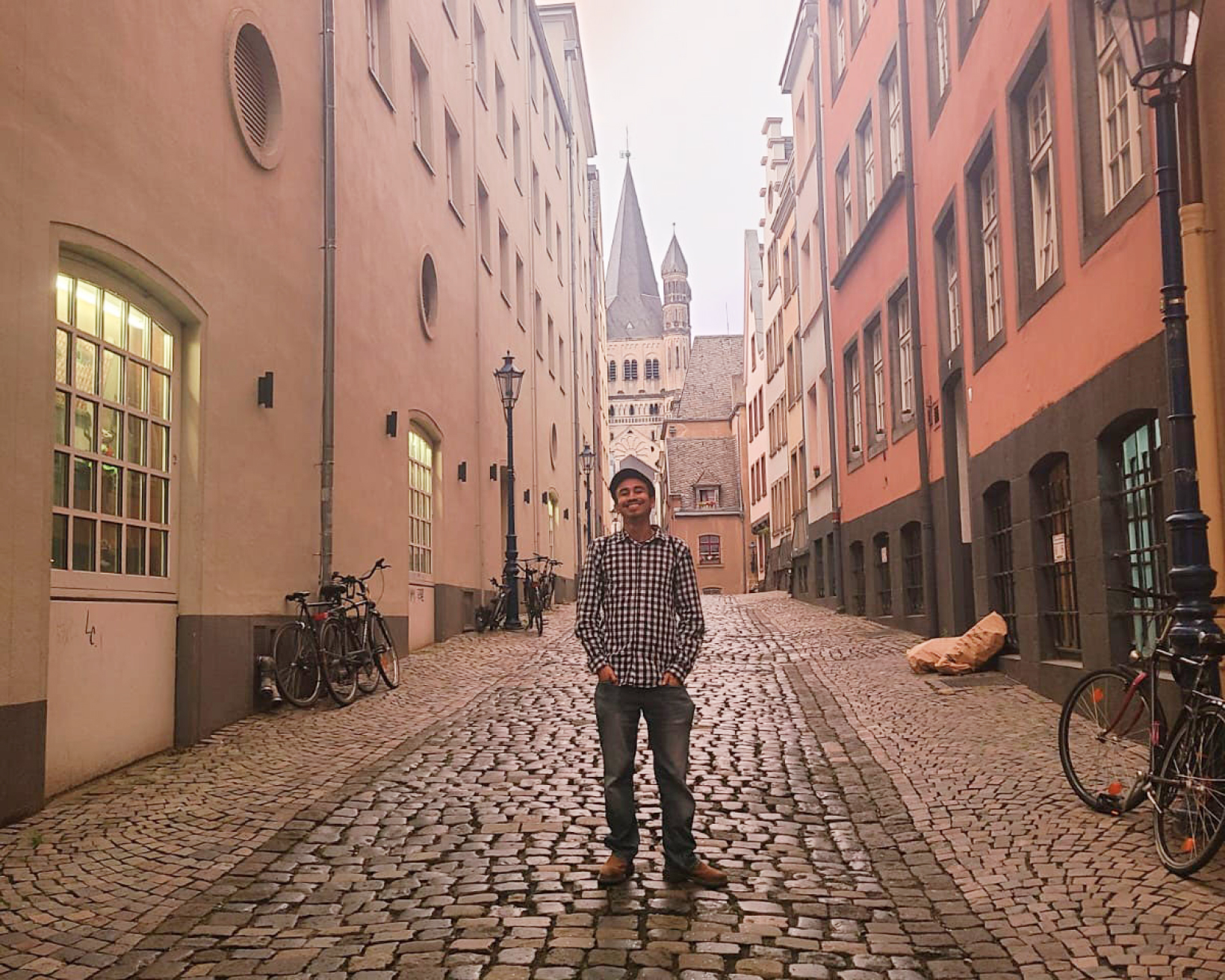Menu
In a mental health crisis? Call or text 988.
Get Help at CHC 
What are you looking for?

Building a Toolkit for Life
The Schwab Learning Center provides support for first-generation college student Alex Fuentes
In the fall of 2021, the Children’s Health Council (CHC) launched the Schwab Learning Center (SLC), an initiative designed to provide affordable and accessible evaluation, learning, and mentoring services to high school and college students facing ADHD and/or learning disabilities. As the program completed its inaugural year, the impact it had was nothing short of inspiring.
Within its first year, the SLC welcomed over 500 registrants, with 74% of students benefiting from financial aid, and 37% being first-generation college students. A significant portion of these first-generation students, like Alex Fuentes, arrived at college without a formal diagnosis for their learning and attention differences.
Fuentes, an emotionally intelligent and hard-working 25-year-old from Long Beach, California, emerged as a beacon of resilience amidst his mental health and learning challenges. Raised by a single teen mother and immigrant grandparents, Fuentes, a first-generation college graduate with a degree in psychology from Stanford, suspected he might have ADHD or ADD, given a family history of learning differences.

Alex Fuentes in Köln, Germany
In high school, Fuentes adeptly managed and concealed his learning and attention difficulties. However, college brought about new challenges, especially after the loss of his grandfather, who was like a father to him. “I think after that time, I struggled a lot more with anxiety and depression,” says Fuentes. “I got to a point where I couldn’t really function.” Eventually, he found it increasingly difficult to focus and cope with his academic responsibilities.
In 2019, Fuentes discovered the Schwab Learning Center, which became a pivotal support system during his undergraduate years. The personalized support from SLC not only helped him identify strategies to improve focus but also introduced him to a community of peers who shared similar struggles.
“I think for me, getting connected to the Schwab Learning Center and hearing about the struggles that other people were experiencing and how they paralleled my experiences was very validating. I’ve been able to understand and put a name to some of the things I’m experiencing.” He went on to say, “Through SLC, I now understand better that the way I operate may be different from the way other people do. It has been very validating and has also helped me to understand how I can move forward, as opposed to internalizing my weaknesses and feeling like something was wrong with me.”
“Through SLC, I now understand better that the way I operate may be different from the way other people do. It has been very validating and has also helped me to understand how I can move forward, as opposed to internalizing my weaknesses and feeling like something was wrong with me.” —Alex Fuentes
SLC helped Fuentes identify positive strategies and alternative ways of doing things, and ultimately take more control over his mental health and learning challenges. “I’ve always been fascinated with cultivating my self-awareness and metacognition. These were qualities that SLC really emphasized.” SLC also provided an opportunity for Fuentes to take on leadership roles, helping others going through similar struggles, “I think that it’s something that isn’t really taught, at Stanford or in high school, and this is something that has made me more successful in my work.”
Against the backdrop of national statistics revealing that 89% of low-income first-generation students leave college without a degree within six years, Fuentes stands as a testament to defying these odds. SLC continues to be a pillar of support and connection for him during life transitions.
Against the backdrop of national statistics revealing that 89% of low-income first-generation students leave college without a degree within six years, Fuentes stands as a testament to defying these odds.
Post-Stanford, Fuentes was accepted into the Coro Fellowship for Public Affairs, an opportunity facilitated by a friend he met through the Schwab Learning Center. Working with the state council on public policies for developmental disabilities, Fuentes made meaningful contributions, including a comprehensive assessment of California’s programs.
His journey recently extended to Germany, where he participated in the Congress-Bundestag Youth Exchange for Young Professionals. Engaging in language programs and exploring the educational system, Fuentes broadened his horizons. Currently a caregiver for a person with a disability, he is forging a career path that intertwines his passions for travel, languages, youth, and disability advocacy.
Reflecting on his journey, Fuentes shares, “I think something that’s been really valuable is the self-work. Whether it’s taking an interest in my own mental health, engaging in therapy, seeking services, getting a diagnosis or finding other people who share what you’re going through. In times of joy and struggle the [SLC] community has been really valuable in cultivating relationships that are meaningful to me. They’ve manifested into these opportunities later on in ways that I often didn’t realize.”
“In times of joy and struggle the [SLC] community has been really valuable in cultivating relationships that are meaningful to me. They've manifested into these opportunities later on in ways that I often didn’t realize.” —Alex Fuentes
Fuentes’ story underscores the importance of programs like the Schwab Learning Center in ensuring equitable access to resources. CHC extends its thanks to The Charles and Helen Schwab Foundation for their generous endowment gift, making the SLC possible. As CHC looks forward to serving more young individuals like Alex Fuentes, the Schwab Learning Center remains a beacon of hope, fostering resilience and transforming lives for years to come.


